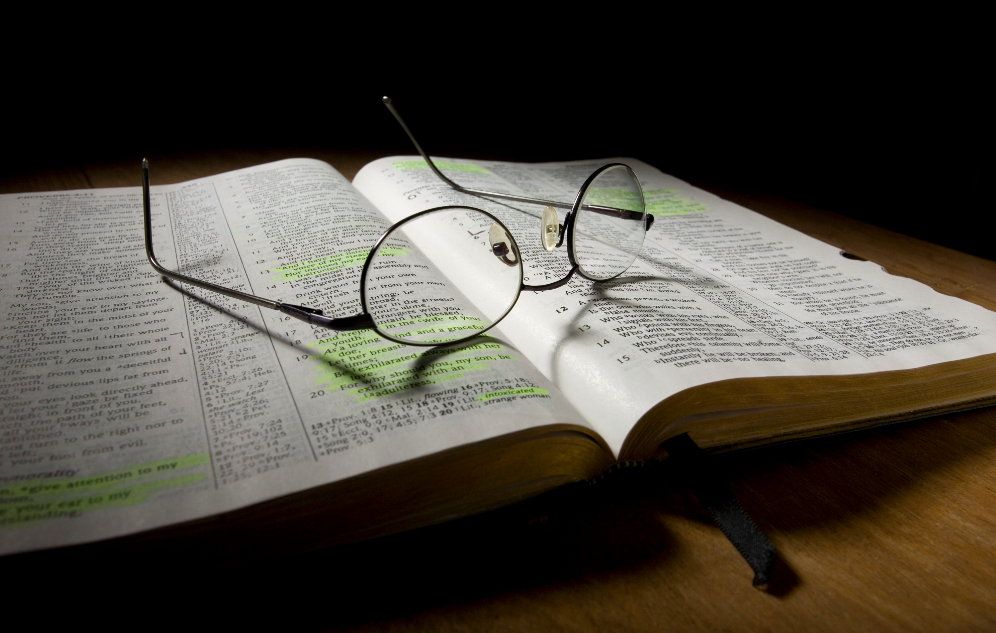By Sam E. Stone
 This quarter we will consider God’s people and worship, learning from Isaiah, Ezra, and Nehemiah. First we will study important sections from Isaiah. His book includes many important messianic prophecies. Israel was to be the means by which God’s blessing would come to all nations of the world.
This quarter we will consider God’s people and worship, learning from Isaiah, Ezra, and Nehemiah. First we will study important sections from Isaiah. His book includes many important messianic prophecies. Israel was to be the means by which God’s blessing would come to all nations of the world.
Isaiah prophesied during the divided kingdom. He was called in the year that King Uzziah died (about 740 BC), with most of his ministry focused on the southern kingdom (Judah). In the opening chapters of his book, Isaiah warns the rebellious people of God’s judgment upon them. In chapter five he lists six “woes” for the nation.
Humble Before God
Isaiah 6:1-4
When the prophet saw the Lord, he was seated on a throne. After Isaiah’s vision of seeing the land forsaken under God’s judgment, he now experienced the reality of being in the presence of the all-knowing and all-powerful deity. Seated on a throne, his train (the fringes of his royal robe) filled the temple (2 Chronicles 18:9). Scripture teaches that no person may see God and live (John 1:18), but John 12:41 explains, “Isaiah said this because he saw Jesus’ glory and spoke about him.”
Surrounding the throne were the seraphim, “winged creatures, human in form, for they are represented as having hands, feet, and voices” (W. Fitch). This is the only mention of seraphim in the Bible. Some feel they are similar to the “cherubim” (Ezekiel 10) or the “four living creatures” (Revelation 4:6-8), but there are obvious differences between them.
These beings called out to one another, “Holy, holy, holy is the Lord God Almighty; the whole earth is full of his glory.” With antiphonal song, they gave great emphasis to God’s holiness. (See other examples of emphasis by repetition in Jeremiah 7:4; 22:29; and Ezekiel 21:27.) R. B. Y. Scott suggests, “The Hebrew language has no way to express the superlative except by repetition. Holiness is the essential quality of deity, glory the manifestation of deity in the natural world.”
The effect of their voices was that the doorposts and thresholds shook and the temple was filled with smoke. James Smith writes, “The heavenly temple shook with the mighty strains of the hymn of these angels. Smoky clouds of incense filled the entire temple and shielded the eyes of the prophet from looking directly upon the glory of deity.”
Forgiven by God
Isaiah 6:5-7
The effect of being in the presence of God himself was almost more than Isaiah could bear. “Woe to me!” he cried. As one who spoke for the Lord, he sensed particularly his failures of speech. “I am a man of unclean lips, and I live among a people of unclean lips, and my eyes have seen the King, the Lord Almighty.”
He acknowledged that it was not only his people who were guilty of doing wrong, but he himself as well. His lips were unworthy to speak God’s message to the people (compare Job 40:4, 5). No sooner had Isaiah sensed his need of cleansing and forgiveness than it was provided by one of the seraphim.
Isaiah’s experience was similar to that of Jeremiah. “Then the Lord reached out his hand and touched my mouth and said to me, ‘Now, I have put my words in your mouth’” (Jeremiah 1:9). This is the classic description of God inspiring his prophets. In the days of the tabernacle, coals of fire were taken from the altar on the Day of Atonement and brought to the Most Holy Place. There atonement was made both for the high priest’s sins and for those of the nation itself (see Leviticus 16:11-17). Isaiah’s sins were removed when the live coal touched his lips. “Your guilt is taken away and your sin atoned for.” Fire is often used in Scripture to represent cleansing (see 1 Peter 1:7).
Service to God
Isaiah 6:8
God himself asks two questions—”Whom shall I send? And who will go for us?” Now Isaiah has a clean heart and a new capacity to hear, understand, and obey the words of the Lord. He responds simply and humbly, “Here am I. Send me!” Like Abraham, Moses, and Samuel, Isaiah answered as every faithful servant should, indicating his readiness to do whatever God may command. Kyle Yates observed that today’s text contains the “woe” of conviction, the “lo” of cleansing, and the “go” of service. In the verses immediately following our printed text, God sent Isaiah forth to deliver his message to the people of Israel.
Sam E. Stone is the former editor of Christian Standard. He continues his writing and speaking ministry from his home in Cincinnati, Ohio.



Comments: no replies